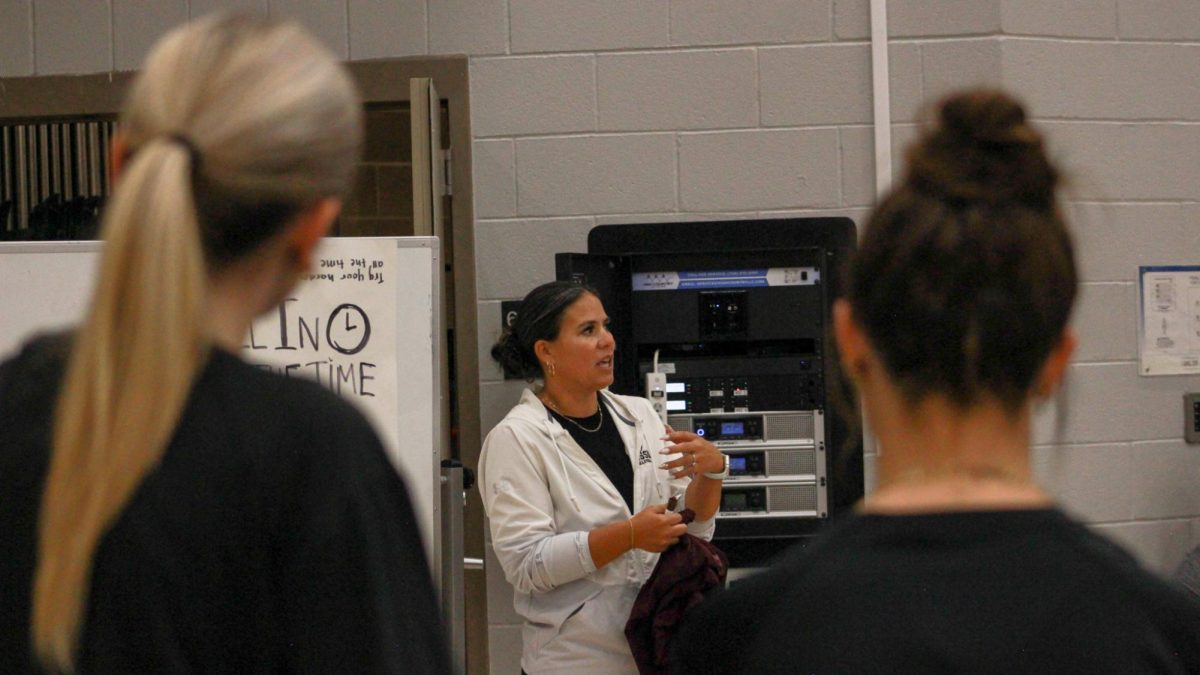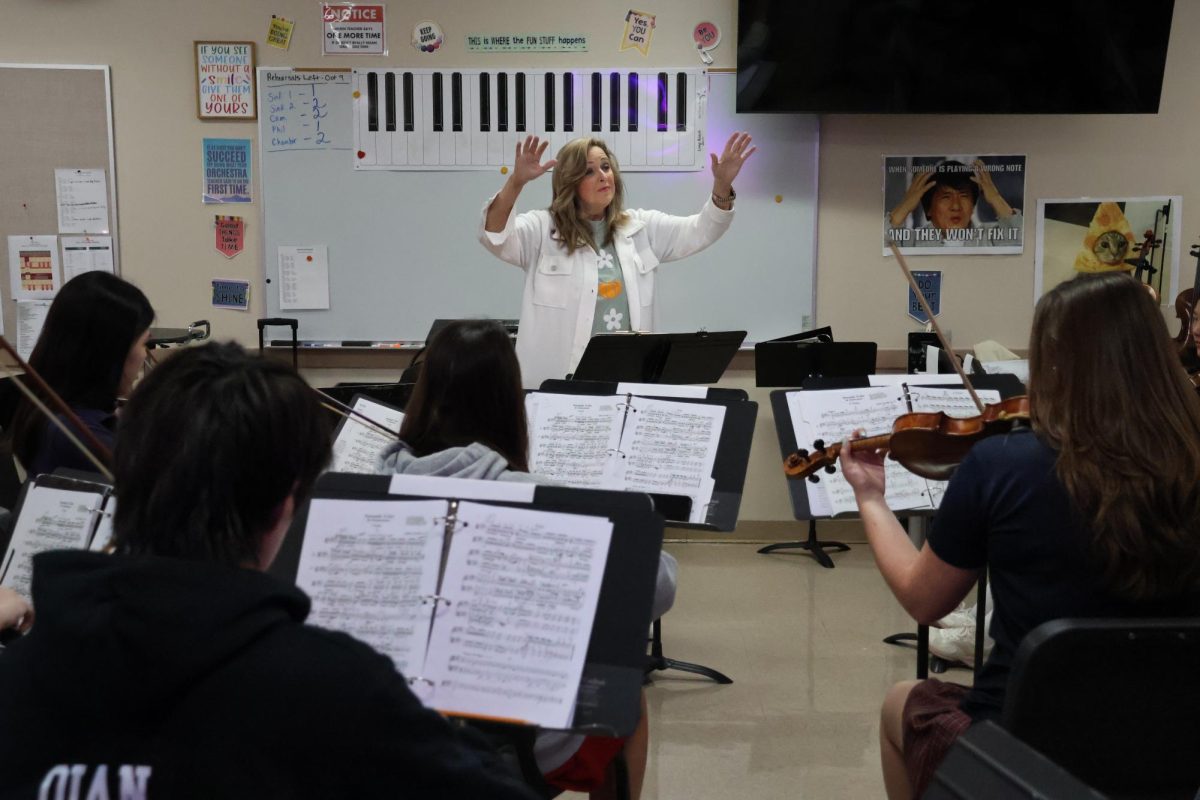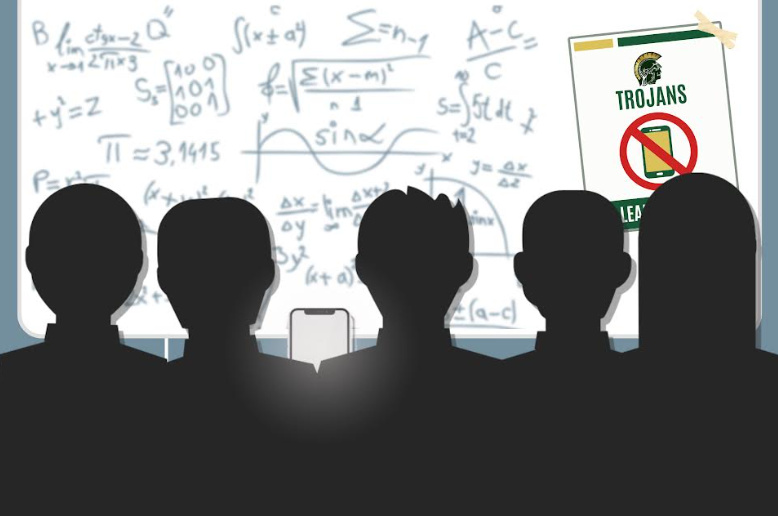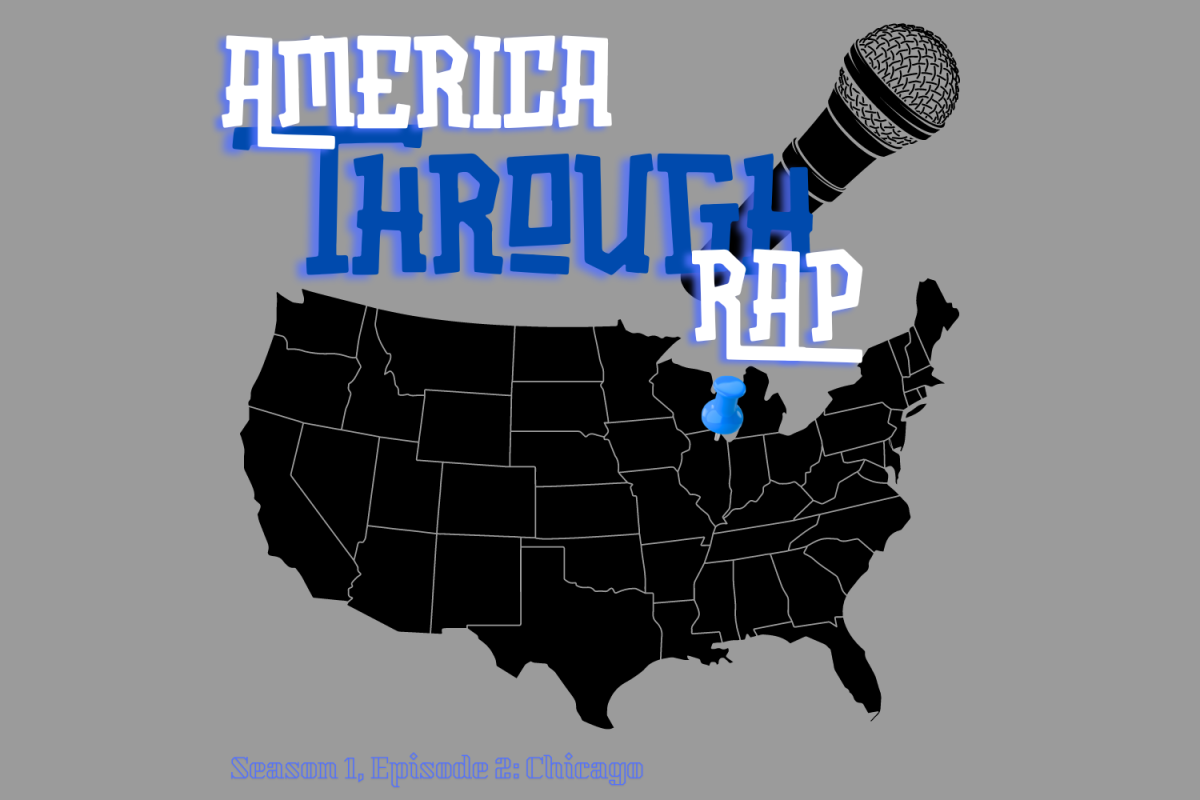The room is silent, save for the quiet, rapid breathing of hundreds of students as they fix their gaze upon the paper in front of them. To anyone who has taken one of the many AP exams offered through classes at Middleton High School (MHS), this scene is familiar. However, for the 2023-24 school year, College Board has announced that more AP exams will be offered digitally, which poses questions about the future of paper AP exams.
Digital AP exams were first introduced in 2021 as a result of the COVID-19 pandemic. For students who were unable to take the in-person exam, AP College Board offered full-length, digital AP exams for the majority of AP subjects. They released information about the characteristics of online exams over the span of a few months, providing information about the schedule and format in February and preparation tools in March.
AP College Board continued to offer digital exams in 2022, although most AP exams reverted back to the pen-and-paper method, and the availability of these exams was largely dependent on the specific school’s policies for AP exam testing. For the 2023 AP exams, AP College Board added a digital option for seven AP subjects: AP Computer Science Principles, AP English Language and Composition, AP English Literature and Composition, AP European History, AP Seminar, AP U.S. History and AP World History: Modern.
As we enter the 2024 AP exam year, there will be nine total AP exams offered in a digital format: the 2023 digital AP subjects, and AP Psychology and AP African American Studies. The offering of these exams varies based on the school and region, but will be taken with the Bluebook testing app, similar to other standardized tests at MHS.
This change was based on a variety of factors, which encompassed past issues with AP exams and new methods of testing resulting from the pandemic. The College Board made a statement regarding the change and why it occurred.
“Digital exams are the future of AP testing,” the College Board wrote on their website. “They remove the need to manage paper exam booklets on exam day and reduce the risk of exam security issues and lost exam responses.”
Mary Blackmore, a biology teacher at MHS, had students take their exams digitally during the COVID-19 pandemic. She explained that it was significantly harder to transfer science exams from paper to digital, as a result of the necessary graphing and visual components that were difficult for an online test to incorporate.
“It was a lot harder for students, particularly for ones who didn’t like to type [the responses],” said Blackmore. “I could see that if you are an AP reader that you might want it typed, but from a science perspective, I don’t think digital [AP exams] work.”
Kris Cody-Johnson, an English teacher at MHS, had a similar perspective on the switch to digital AP exams. Cody-Johnson teaches AP Literature and Composition, which made the paper to digital switch during the 2023 AP exams.
“Numerous studies show that on-paper reading and writing produces better results, revealing more student knowledge,” said Cody-Johnson. “Online testing implies [that] students have less preparation than if they took the same test on paper.”
Many sources have found that students achieve higher scores when taking tests on paper, with standard deviations of 0.10 in math subjects and 0.25 in English subjects. This amounts to differences of about 5.4 months in math and 11 months in English shown between paper and digital test takers. The reasons vary from unfamiliarity with the tests to differences in testing format.
“We can argue whether or not switching to online testing is good or bad, but it’s probably inevitable,” said Ben Backes of the American Institutes for Research in an interview with FutureEd. “So, the real question is…how should states or districts’ education agencies respond to this? And step one is at least acknowledging that there might be a difference.”
The College Board requires that U.S. schools eligible for digital AP exams administer digital tests in the nine available subjects, which have “the same number of sections, number and type of questions, question choice and timing as paper exams.” The rules for taking the actual AP exam remain applicable to the digital AP exam, so students cannot return to previous sections after they submit their work.
“At this rate, it appears that they will keep adding subjects to be administered digitally every year until they are all administered digitally,” said Lucilia Schieldt, the AP exam coordinator for MHS. She explained more about the Bluebook process, drawing similarities to the PSAT and standardized testing that also use the app.
“There is a test preview for each AP subject within the digital option, and each includes sample AP multiple-choice and free-response questions…I was pleased to see many helpful features and an easy to use layout,” Schieldt said.
These test previews can be accessed within the Bluebook app on a school-issued device, and can be used to prepare students for the format of the digital AP exam in May. However, there are still key aspects missing that raise additional challenges for teachers in preparing students for the exam.
“I had chosen the mode of testing [for the final] to parallel the written test…practicing with the technology is crucial…[but] there aren’t enough practice tests to fully practice the test,” said Cody-Johnson, discussing previous preparation for AP exams.
The drastic change for teachers forces them to adopt a new system to teach students the skills they need to take a digital AP exam. They must consider preparing students in digital skills, in addition to the course’s learning concepts.
With this in mind, Cody-Johnson believes in the importance of teachers’ attentiveness to the digital system.
“While the interface appears well-designed, if students don’t have time to practice with the interface, they won’t be as successful,” she said.
The digital format will allow the College Board to save money from printing the testing booklets and the other costs that come with paper AP exams, and it will also eliminate issues that have arisen from using paper booklets, such as full batches of tests being lost in transportation.
However, Cody-Johnson brings up an important point on the College Board’s decision. Even with the switch to digital exams, AP tests still cost money for the students. The cost advantages of digital exams are not extended to the students taking the exam, and the executives at College Board are simply amassing more wealth themselves.
“[The] College Board does not need the money and has not decreased the cost to students,” she said. “In fact, College Board, a supposed non-profit, holds over $1.5 billion, and their executives are very well paid. Their CEO, for instance, is paid $1.8 million.”
The College Board’s assets amount to around $2 billion, with the chief executive, David Coleman, making around $2.1 million per year. From the $90 million in government fees given to the College Board, they only spent $37 million towards lowering the price of the AP exams.
Given these statistics, it is increasingly clear that the revenue gained from switching AP exams from paper to digital format will not be solely for the good of the students, but also for the possibility for the College Board to amass more wealth despite its nonprofit status.
The significant change in the format of the AP exam has many ramifications and will require further scrutiny from around the globe regarding its benefits, drawbacks, and where the cost savings are being applied. For now, schools and students will have to cope with the adjustment as they transform their preparation systems to align with the online testing.
As a method of preparation, Schieldt suggests that students take advantage of the practice AP exams on the Bluebook testing application to familiarize themselves with taking an online test.
“Test previews are untimed and students won’t receive scores or any feedback on their answers,” she said. “I encourage anyone who is concerned about taking the AP exams digitally to utilize this!”
This story was originally published on The Cardinal Chronicle on March 23, 2024.




































